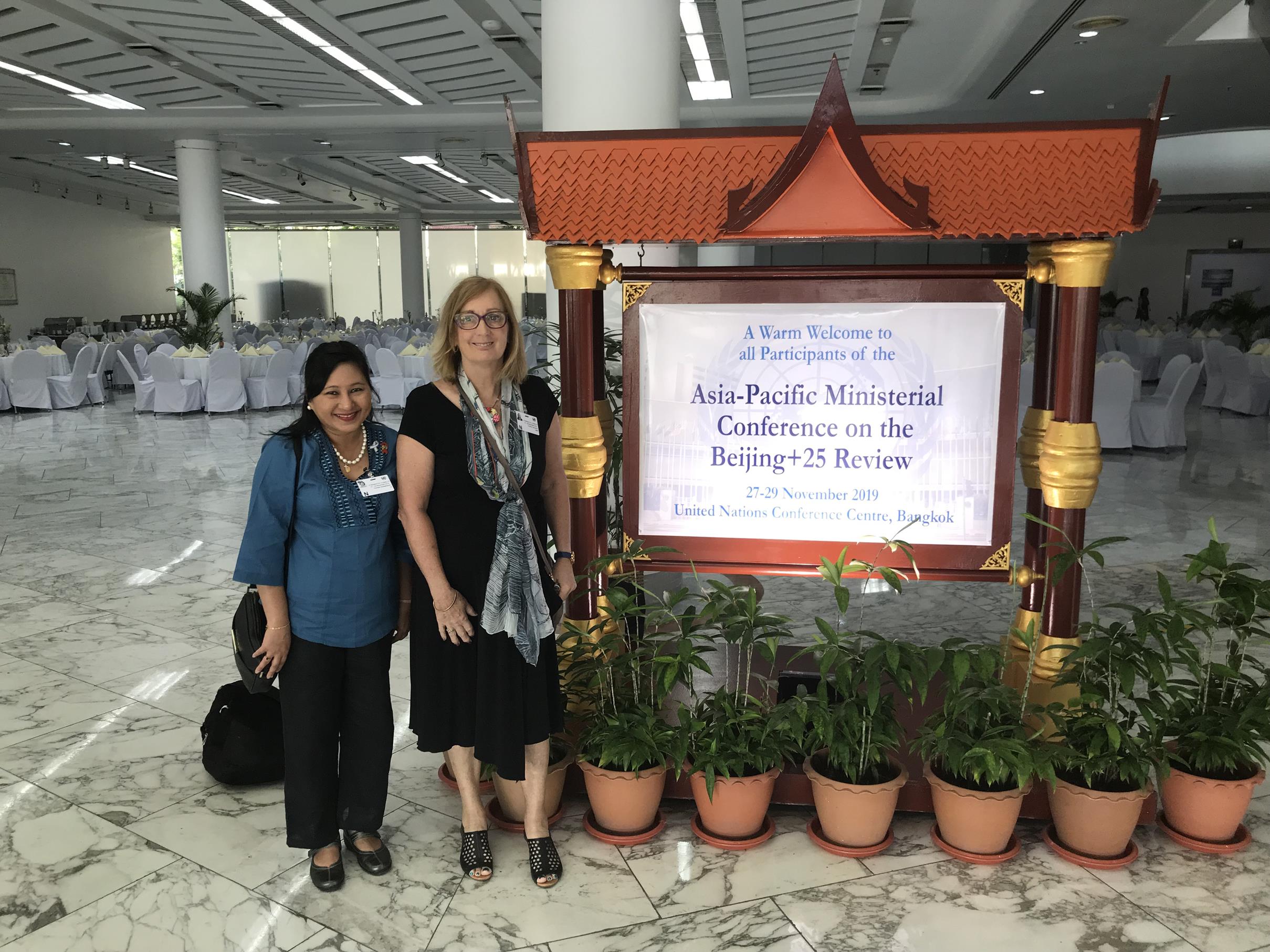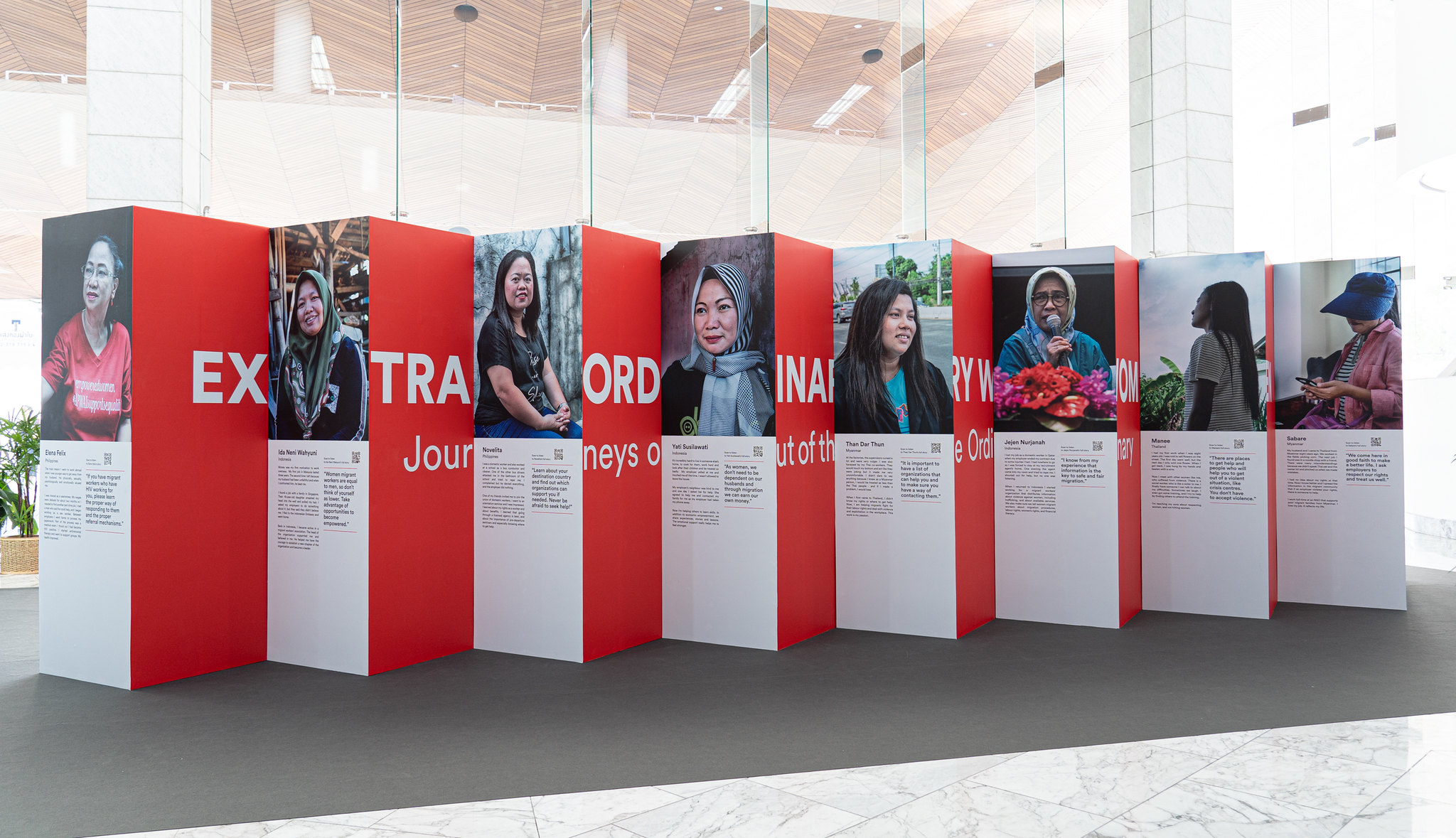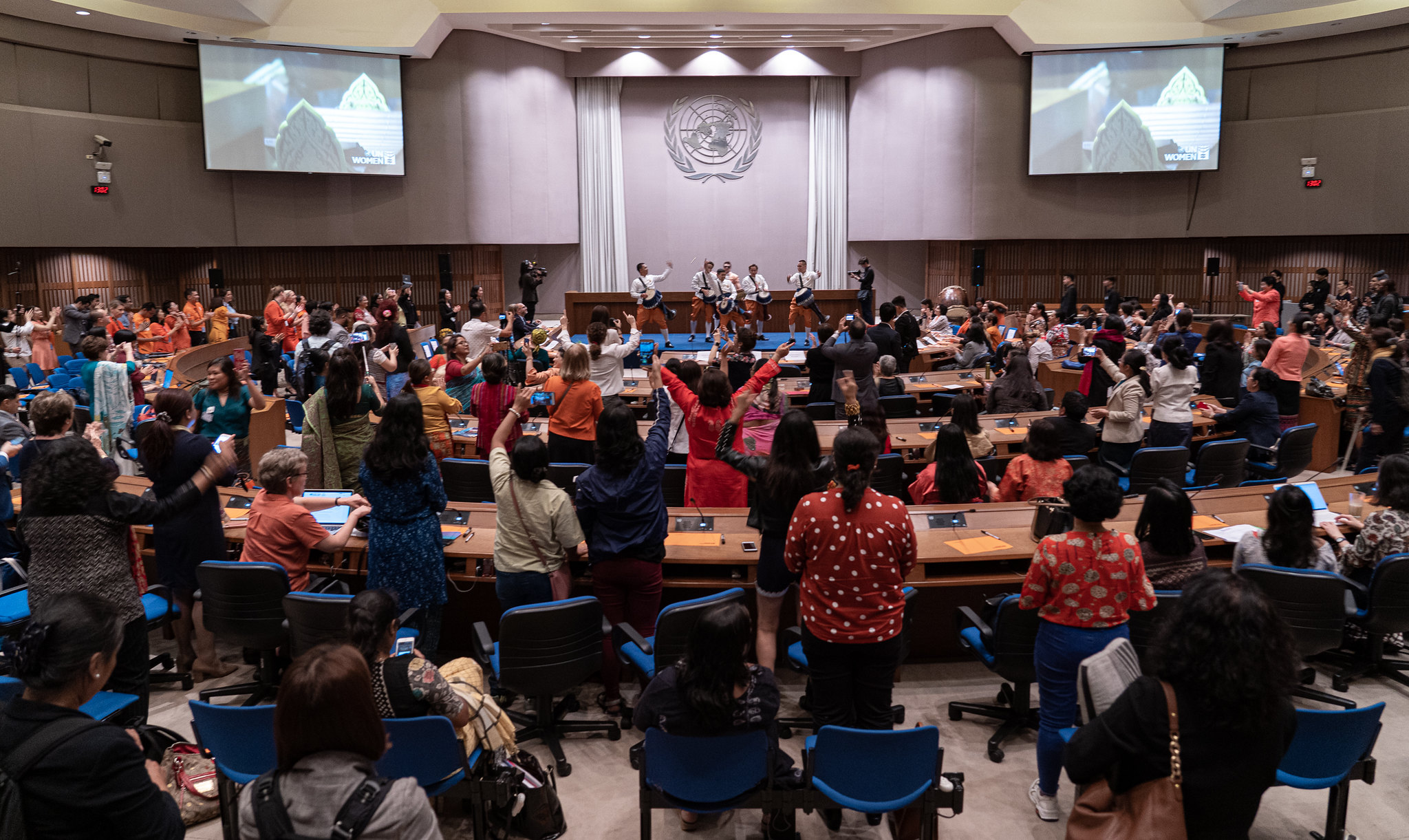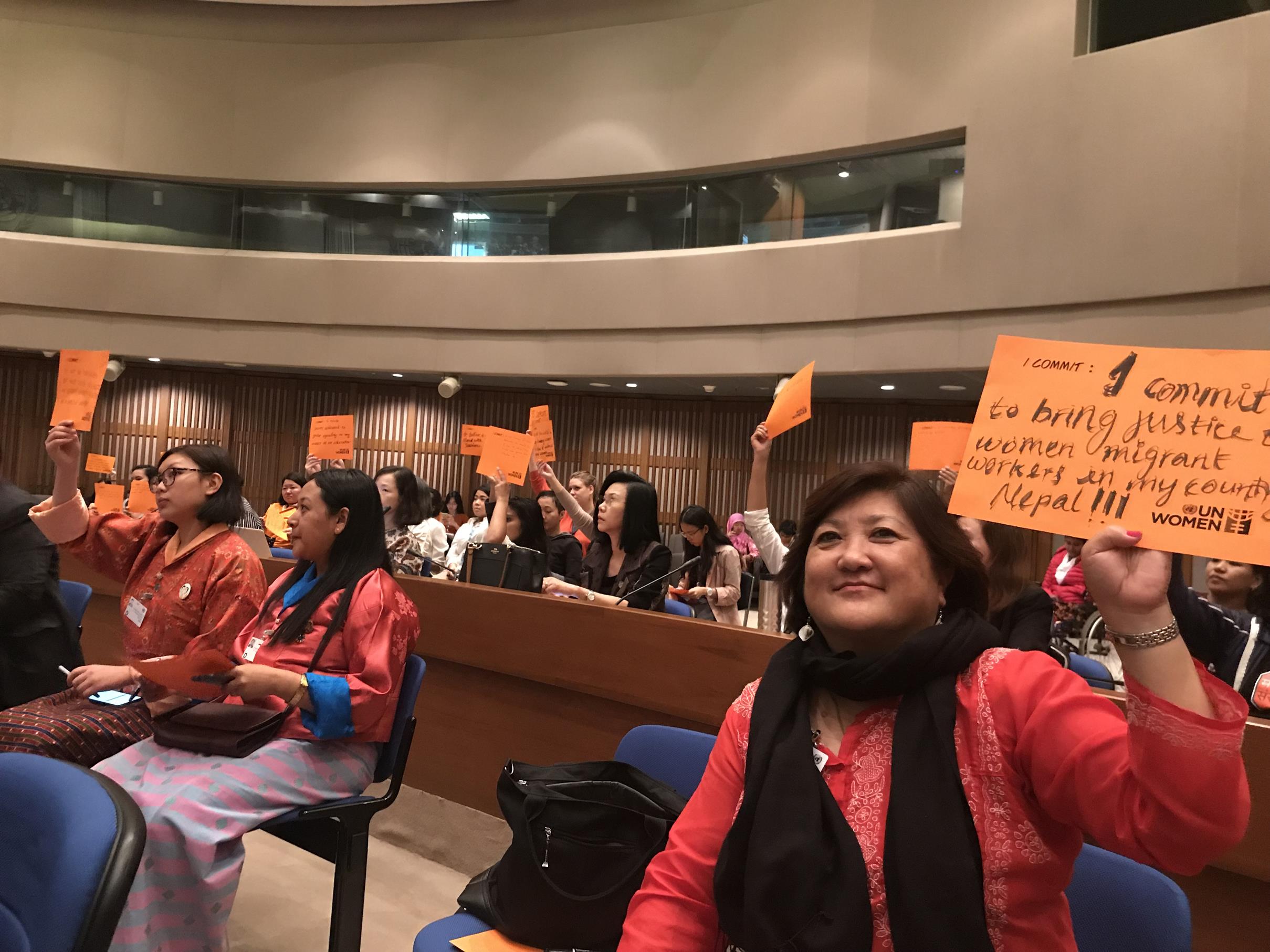A blog by Asst Programme Director 1 - Christine Johnstone.
Christine attended this 5 day forum along with Theresa Devasahayam
The Asia-Pacific Beijing+25 Region meeting organised by Civil Society Steering Committee with support from UN Women's Regional Office for Asia and the Pacific and United Nations Economic and Social Commission for Asia and the Pacific (ESCAP). This was a 6 day meeting consisting of 3 days of CSO meeting and 3 days of Ministerial Meetings.
The 25-year anniversary of the Beijing Declaration and Platform for Action (1995) will be celebrated in 2020. The anniversary provides a pivotal moment to review state action and compliance in the implementation of the Beijing Declaration and Platform for Action (1995). It also provides an opportunity for feminist movements to analyze current political, economic and social trends and consider ways to advance women's human rights in a global context marked by deepening inequalities within and between countries, climate change and natural disasters, and regressions in the achievement of women's empowerment. it also an opportune moment to contribute to the critical review of the first five years of the implementation of the Agenda 2030 and the Sustainable Development Goals (SDGs) and other gender-related global and regional commitments. (UN ESCAP)
This meeting allowed civil society and other key stakeholders from across the Asia-Pacific region to:
• identify key strategic areas and actions required to overcome barriers to gender equality and the empowerment of women.
• provide a platform to highlight innovative solutions and exchange good practices and lessons learned on strategies for change.
• invigorate the momentum to achieve gender equality and the empowerment of women through increased engagement with stakeholders of different ages. (UN ESCAP)
The 25-year a
There were 3 days of CSO meetings followed by 3 days of Ministerial Meetings, UN Women meetings, parallel events and workshops. This event was also attend by Theresa Devasahayam who represented Soroptimist International whilst I represented South West Pacific. Soroptimist International was one of 320 CSO representatives, the 3 day CSO meetings allowed for delegates to analyse current political, economic and social trends and consider ways to advance women's human rights in a global world. The theme for the 3 days was Anger, Hope and Action. Day 1 provided opportunities for delegates to raise concerns about systemic barriers to realising women's rights, and the causes of injustices and women's oppression. While there were plenary sessions each day, there were 12 thematic work-shops across the 3 days.
Topics of the workshops were numerous—Women with Disabilities, Carer Social Protection Systems for Gen-der Equality and Empowerment, Women's Land and Resource Rights, Ending Violence Against Women, Bridging Feminism, South-East Asian Young Women Caucus, Addressing Gender Based Violence in the World of Work, Equality in the Family, Peacebuilding, Justice and Health, Addressing Violence Against Women and Children. (There were many more, but all based around making the world a better place for women.)
Major recommendations from each session were noted and feedback forms were available for delegates to complete. All information collected was presented to the Ministerial Conference as a CSO draft input document to be sent to the CSW In New York in March 2020.
Observations from the event, there was frustrations about:
Continuing gender based violence / violence against women and children
Economic forces and corporations taking autonomy and livelihoods from women,
Climate crisis in which those who have contributed least (our pacific island nations) but are bearing the brunt of the negative impacts.
Violence and threats against human rights defenders.
Civil Society Organisation discussions covered many topics, some of these were about:
• New and emerging issues which were not around in the day of Beijing, and the newer and younger voices of organisations need to be heard.
• There were reminders to remember the gains which have been achieved, but also to note that the strategy used 25 years ago perhaps may not be right for today.
• The government of a country is signatory in the negotiating room, CSO are excluded from participation, we have to remain vigilant, in that a law may have been passed, but how is it implemented?, our organisations need to monitor and challenge the 12 critical areas of concerns.
• Lack of power and internet for many countries is holding back the women.
At many of the sessions there were re-occurring issues:
• Domestic and Family Violence
• Family law reform
• Labour and livelihoods rights for farmers, domestic workers, migrant workers,
• Transgender women / men
• At the end of the week there were 4 critical areas of concern
• Climate Crisis
• Women and culture
• Women in all their diversities
• Women and disabilities
Civil Society Organisations were critical and disturbed about the shrinking space of our engagement, at the local, national and international level, extremely concerned about pushback on women's human rights, all forms of violence against women and girls is rising.
Day 2 and 3 and 4 parallel events provided me with 3 opportunities to speak about the work of Soroptimist International South West Pacific. As day 2 and 3 were about Hope and Action, I was able to open each of my talks with these words Soroptimist International provides Hope and Action ……, showcasing the work we have performed in Rebuk Sato village, Lombok, the Women, Water and Leadership project in Sarawak, Borneo, the Sanctuary Shelter for Women in Fiji and Birthing in the Pacific project in PNG. I also explained about the diversity of clubs in the Asia-Pacific region whose members are working on grassroots projects. I especially tied in the Indonesian language literacy programme in Rebuk Satu village, how the improved language skills will assist in improving their economic situation, as the language skills will assist them to negotiate and open up new trading opportunities. While others are still waiting for out-comes, Soroptimists are providing opportunities and leadership and change.


While CSO delegates were excluded from the Member States deliberations, we were receiving nightly briefings on the outcomes of the day. The briefings gave us an opportunity to speak with our country delegates on what we as a CSO might want changed. While the member states were deliberating we were able to listen to Countries deliver their progress reports in the main auditorium, or attend a selection of 13 UN presentations. Gender violence was a major topic of the week with numerous workshops, major sessions and side events covering it.
November 25th International Day for the Elimination of Violence against women and children. UN Women hosted a special event to commemorate the 16 days of Activism Against Gender Based Violence. Three women told their story and we all know how powerful stories are in changing the narrative. You can watch this session here. https://www.facebook.com/unwomenasia/videos/814964175607888/
Statements and outcome documents can be read by following the links below.
For the opening statement for ESCAP Vica Larasati (from Indonesia) delivered a statement to the Intergovernmental Meeting on behalf of the civil society participants in the three day forum held from 24-26 Nov. Her name was put forward by the Young Feminist Forum members to deliver the Statement and she did an amazing job.
You can read the statement here
For the ESCAP interventions you can see these on the APWLD website https://apwld.org/cso-interventions-at-asia-pacific-intergovernmental-meetingo-n-beijing25-review/
You can watch video of the opening session including the civil society statement (from about 46mins 20secs into the video) here: https://www.youtube.com/watch?v=LI1Wbf8S-yk
The Australian Government ESCAP Statement on Beijing + 25 can be found here
The draft Outcomes Document from the B+25 can be found here
